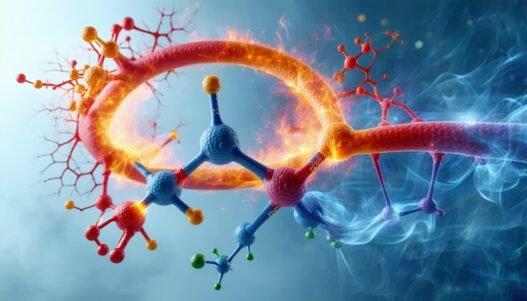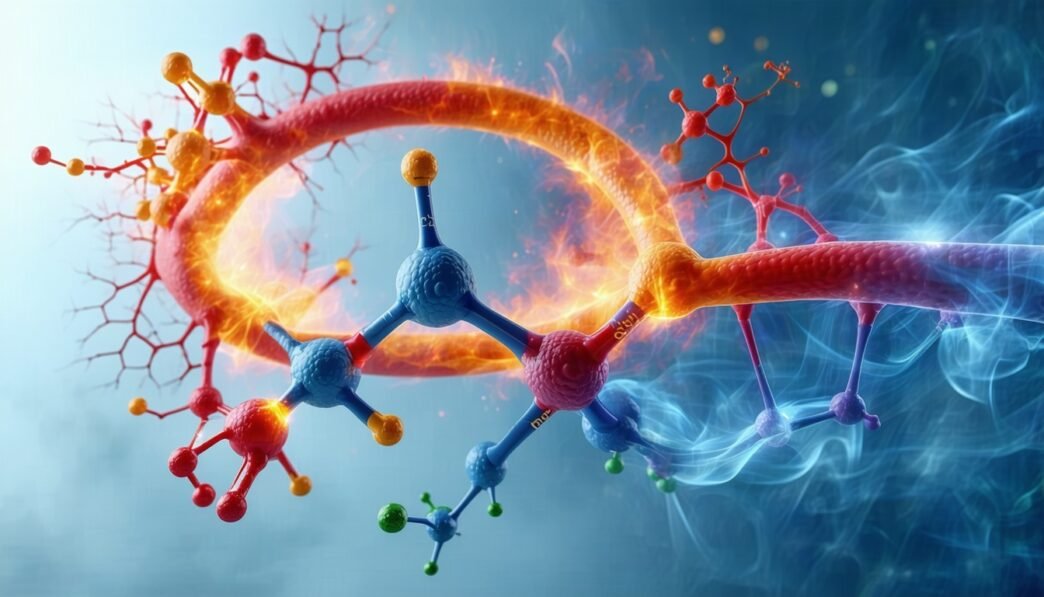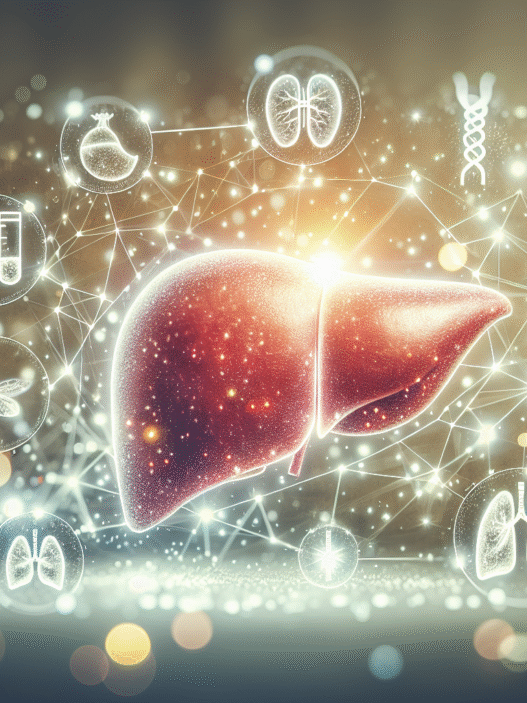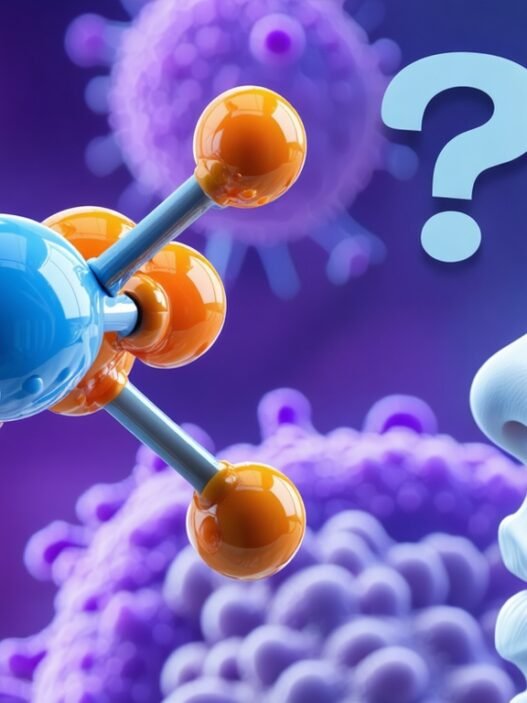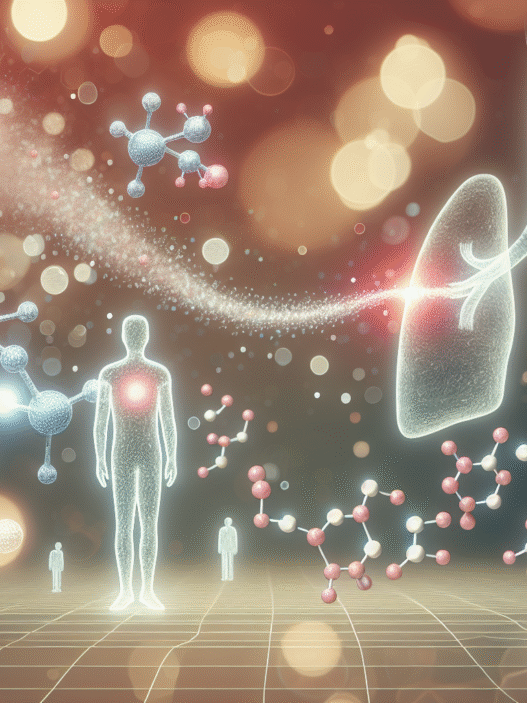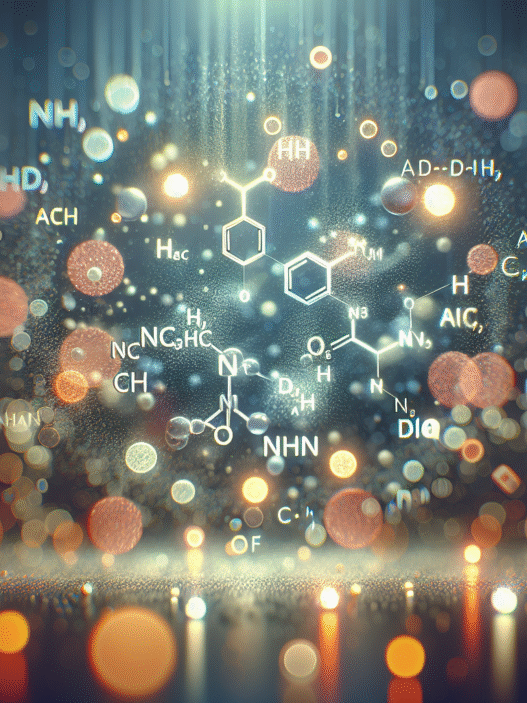Understanding Chronic Inflammation
Chronic inflammation is a prolonged and persistent immune response that plays a significant role in various disease processes and impacts overall health.
Role in Disease Processes
Chronic inflammation is inherently linked to numerous health conditions, including rheumatoid arthritis, lupus, and even some cancers. It contributes to over half of global mortality rates due to its involvement in the pathogenesis of a wide range of diseases such as cardiovascular diseases, diabetes, and neurodegenerative disorders (Cleveland Clinic).
This persistent inflammatory response can lead to cellular damage and dysfunction, exacerbating existing health conditions. Notably, chronic inflammation is a driving factor in diseases like atherosclerosis, periodontitis, and hay fever. Furthermore, the impacts of chronic inflammation can accelerate aging, emphasizing its relevance in broader health contexts (PubMed).
| Disease | Role of Chronic Inflammation |
|---|---|
| Cardiovascular Disease | Leads to arterial plaque buildup, increasing heart attack risk |
| Cancer | Increases risk by promoting cellular changes and mutations |
| Diabetes | Contributes to insulin resistance and related complications |
| Neurodegenerative Diseases | Exacerbates conditions like Alzheimer’s and Parkinson’s |
Impact on Overall Health
The ramifications of chronic inflammation extend beyond individual diseases, affecting overall longevity and quality of life. Chronic inflammation may exacerbate conditions such as type 2 diabetes and Alzheimer’s disease, commonly associated with aging.
Individuals experiencing chronic inflammation often report various symptoms, including fatigue, joint pain, and digestive issues, which can significantly diminish their quality of life. Managing inflammation effectively is crucial for improving health outcomes and promoting longevity.
Understanding whether N-Acetyl Cysteine (NAC) can help manage inflammation is important for those seeking to support their liver health and overall wellness.
Dietary Approaches to Inflammation
Managing inflammation through diet is essential for overall health. Certain dietary patterns and foods have been shown to support the reduction of inflammation in the body.
Anti-inflammatory Diets
Dietitians often recommend adopting an anti-inflammatory diet to lower inflammation levels and enhance overall wellness. Some of the popular anti-inflammatory diets include the Mediterranean Diet and the DASH Diet. Both of these dietary approaches emphasize whole foods, healthy fats, and lean proteins, which contribute to a decrease in inflammatory markers in the body (Cleveland Clinic).
| Diet Type | Key Features | Benefits |
|---|---|---|
| Mediterranean Diet | Rich in fruits, vegetables, whole grains, fish, and healthy fats (like olive oil) | Lowers inflammation, supports heart health |
| DASH Diet | Emphasizes fruits, vegetables, low-fat dairy, whole grains, and lean proteins | Improves blood pressure, reduces inflammation |
Role of Specific Foods
Certain foods possess anti-inflammatory properties that can help mitigate inflammation. Including these foods in one’s diet can be beneficial:
| Food Category | Examples | Anti-inflammatory Properties |
|---|---|---|
| Fatty Fish | Salmon, mackerel, sardines | High in omega-3 fatty acids |
| Fruits | Berries, oranges, cherries | Rich in antioxidants and vitamins |
| Leafy Greens | Spinach, kale, collard greens | Contain vitamins A, C, and K, along with antioxidants |
| Spices | Turmeric, ginger, garlic | Known for their potent anti-inflammatory effects (Cleveland Clinic) |
An anti-inflammatory diet, combined with herbal supplements like turmeric and ginger, can further aid in combating inflammation. However, individuals should consult their healthcare provider before integrating herbal supplements for medical purposes (Medical News Today).
By focusing on dietary approaches that emphasize whole, nutrient-rich foods, individuals concerned with inflammation, liver health, and detoxification can potentially improve their overall health and wellness. For more information on how NAC may support inflammation management, check out our article on what is NAC N-Acetyl Cysteine used for?.
Managing Inflammation with Medication
Inflammation can often be managed effectively through medication. Two common types of medications used to reduce inflammation are corticosteroids and nonsteroidal anti-inflammatory drugs (NSAIDs).
Corticosteroids for Inflammation
Corticosteroids, such as prednisone, are powerful anti-inflammatory medications used to treat various conditions that involve chronic inflammation. These conditions include rheumatoid arthritis, lupus, and vasculitis. Corticosteroids work by suppressing the immune response, consequently reducing inflammation.
When prescribed, corticosteroids can be delivered in several forms, including pills, injections, or topical treatments. While they can effectively manage symptoms and improve the quality of life, long-term use may result in side effects, including weight gain, osteoporosis, and increased susceptibility to infections. Table 1 outlines some key corticosteroids and their common uses.
| Corticosteroid | Common Uses |
|---|---|
| Prednisone | Rheumatoid arthritis, lupus |
| Dexamethasone | Allergies, skin conditions |
| Hydrocortisone | Adrenal insufficiency, inflammation |
Nonsteroidal Anti-inflammatory Drugs (NSAIDs)
Nonsteroidal anti-inflammatory drugs (NSAIDs) are another class of medications that can alleviate inflammation symptoms. Common NSAIDs include naproxen, ibuprofen, and aspirin. These medications work by inhibiting enzymes that contribute to inflammation, thus providing relief from pain, swelling, and fever.
NSAIDs can be suitable for both acute and chronic inflammatory conditions. However, their long-term use may lead to adverse effects, such as gastrointestinal issues, cardiovascular risks, and kidney problems. Table 2 provides an overview of some widely used NSAIDs and their main indications.
| NSAID | Common Uses |
|---|---|
| Ibuprofen | Pain relief, inflammation management |
| Naproxen | Arthritis, menstrual pain |
| Aspirin | Pain relief, prevention of heart attacks |
In summary, the use of corticosteroids and NSAIDs is prevalent in managing inflammation effectively. Individuals concerned about inflammation and its effects on health should consult healthcare professionals for personalized treatment options and potential side effects. Combining these medications with supportive measures, such as N-Acetyl Cysteine (NAC), may provide additional benefits in managing inflammation and supporting overall health.
Exploring N-Acetyl Cysteine (NAC)
Mechanism of Action
N-Acetyl Cysteine (NAC) operates primarily through its role as a precursor to glutathione, a vital antioxidant found in every cell in the body. By replenishing glutathione levels, NAC helps counteract oxidative stress and bolsters the body’s detoxification processes. This action is particularly important as glutathione plays a significant role in neutralizing free radicals and reducing inflammation.
Moreover, NAC exhibits inflammatory modulation properties by stabilizing glutamate levels in the brain, which can influence overall brain health. Research indicates that its regulatory effects could provide benefits in conditions like Alzheimer’s and Parkinson’s disease, although further studies are necessary to confirm these effects.
Benefits for Respiratory Health
NAC is particularly beneficial for individuals with respiratory conditions such as chronic obstructive pulmonary disease (COPD). It acts as both an antioxidant and an expectorant, helping to alleviate symptoms associated with respiratory conditions by reducing inflammation in bronchial tubes and lung tissue. This dual action helps clear mucus and improves overall respiratory function (Healthline).
The following table summarizes the key advantages of NAC for respiratory health:
| Benefit | Description |
|---|---|
| Antioxidant Properties | Neutralizes free radicals, reducing oxidative stress. |
| Mucolytic Agent | Aids in thinning and loosening mucus for easier clearance. |
| Anti-inflammatory Effects | Reduces inflammation in bronchial tubes and lung tissue. |
These properties make NAC a valuable supplement in managing respiratory ailments and enhancing lung function. Consequently, those concerned about their respiratory health may find NAC beneficial. For further insights on NAC’s uses, visit our article on what is NAC N-Acetyl Cysteine used for?.
NAC’s Impact on Various Health Conditions
N-Acetyl Cysteine (NAC) shows promising potential for various health concerns, particularly in the realms of fertility, blood sugar management, and brain health.
Fertility Improvement
Research indicates that NAC may positively influence fertility in both men and women. Studies have shown improvements in semen integrity, partner pregnancy rates, and can even aid in inducing or enhancing the ovulation cycle. In male infertility cases, NAC can help reduce oxidative stress, which is known to damage reproductive cells, thereby supporting reproductive health.
| Aspect | Effect of NAC |
|---|---|
| Semen Integrity | Positive impact |
| Partner Pregnancy Rates | Increased |
| Ovulation Cycle | Enhanced or induced |
Blood Sugar Regulation
NAC has been noted for its potential to stabilize blood sugar levels. It achieves this by decreasing inflammation in fat cells, which can lead to reduced insulin resistance. By improving insulin sensitivity, NAC can assist in maintaining normal blood sugar levels and decreasing the risk of developing type 2 diabetes (Healthline).
| Mechanism | Impact |
|---|---|
| Decreases Inflammation | Reduces insulin resistance |
| Improves Insulin Sensitivity | Aids in maintaining normal blood sugar levels |
Brain Health Benefits
The ability of NAC to regulate glutamate levels and replenish glutathione is also being explored for its implications on brain health. This is particularly relevant for conditions such as Alzheimer’s and Parkinson’s disease. While the evidence is promising, more human research is necessary to fully validate these potential benefits.
| Condition | NAC Potential Benefits |
|---|---|
| Alzheimer’s Disease | Possible regulation of glutamate |
| Parkinson’s Disease | Potential support for brain health |
NAC’s multifaceted role in promoting health makes it an interesting subject for ongoing research, especially in relation to detoxification and longevity. For further insights into other uses of NAC, refer to our article on what is nac n-acetyl cysteine used for?.
Considerations and Side Effects of NAC
Safety Profile
N-acetylcysteine (NAC) is recognized for its role in medical treatments, especially for hepatotoxic doses of acetaminophen. It is FDA-approved and demonstrates efficacy when administered within 8 hours of ingestion. NAC also supports detoxification processes, helping to alleviate potential damage to the liver and kidneys.
Despite its benefits, the bioavailability of NAC is relatively low, with less than 10% of the intact molecule reaching the bloodstream and tissues (PMC). Renal excretion plays a significant role in its elimination, accounting for approximately 30% of NAC excretion. This is particularly important for individuals with conditions like severe liver injury or end-stage renal disease, as these may affect its pharmacokinetics.
Potential Adverse Reactions
While NAC is generally regarded as safe, there are some potential side effects associated with its use, particularly with oral and intravenous administration. Common side effects include:
| Side Effect | Type of Administration |
|---|---|
| Nausea | Oral |
| Vomiting | Oral |
| Diarrhea | Oral |
| Gastroesophageal reflux | Oral |
| Anaphylactoid reactions | Intravenous |
Intravenous NAC can lead to anaphylactoid reactions in up to 18% of patients, particularly when administered at lower acetaminophen levels. Such reactions can be managed with antihistamines and intravenous fluids (NCBI Bookshelf).
Individuals considering NAC for its purported benefits should consult a healthcare provider, especially if they have pre-existing health concerns. For more information on who should avoid NAC, visit who should not take n-acetyl cysteine?.
While NAC offers various health benefits, including support for liver health and detoxification, it is essential to weigh these advantages against its potential side effects and interactions with other medications.










